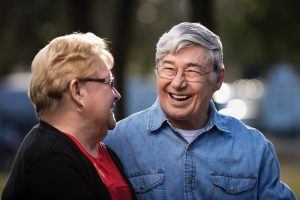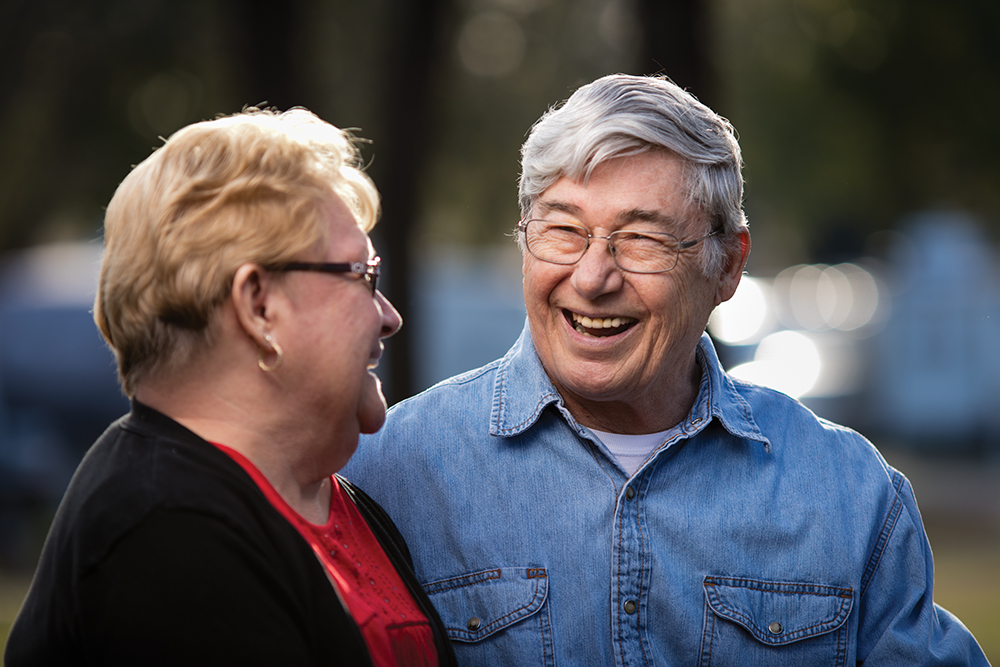Norman Todd
 If a cancer diagnosis has taught Norman Todd and his wife Ladonna one thing, it’s that life goes on and you might as well live it to the fullest. In 2015, shortly before Ladonna had the upper-left lobe of her lung removed due to cancer, Norman was diagnosed with rectal cancer. More than 45 treatments later, he’s feeling good—and more appreciative than ever of everyday life. The couple spends about half their time at the Evening Star Campground near Topeka, Illinois, and Norman says he’s enjoying their time together there even more these days.
If a cancer diagnosis has taught Norman Todd and his wife Ladonna one thing, it’s that life goes on and you might as well live it to the fullest. In 2015, shortly before Ladonna had the upper-left lobe of her lung removed due to cancer, Norman was diagnosed with rectal cancer. More than 45 treatments later, he’s feeling good—and more appreciative than ever of everyday life. The couple spends about half their time at the Evening Star Campground near Topeka, Illinois, and Norman says he’s enjoying their time together there even more these days.
He’s also hoping to play a role in helping future patients discover that same quality of life by taking part in a Foundation-funded clinical trial. Participants are testing a chemotherapy drug that may eliminate the need for radiation prior to surgery—which could help reduce side effects and get patients into the operating room faster. “I appreciate all that the people who went before me did to help develop new treatments, and I want to do what I can to help someone else in the future.”




